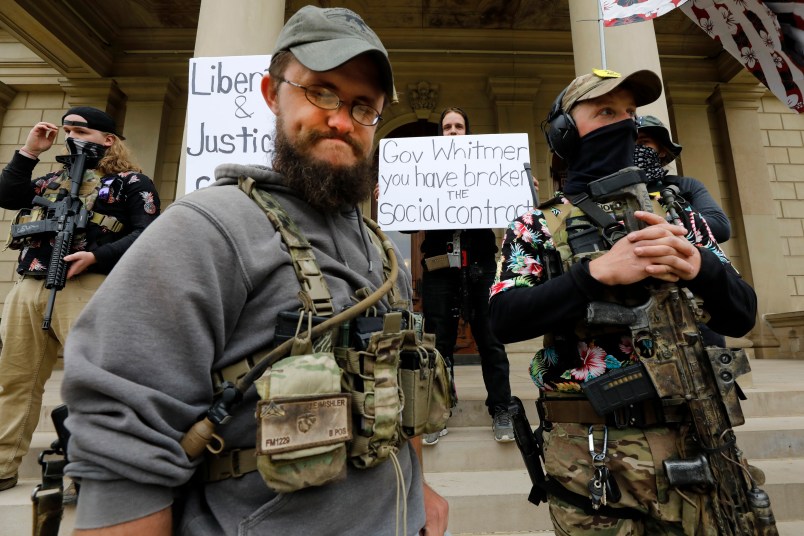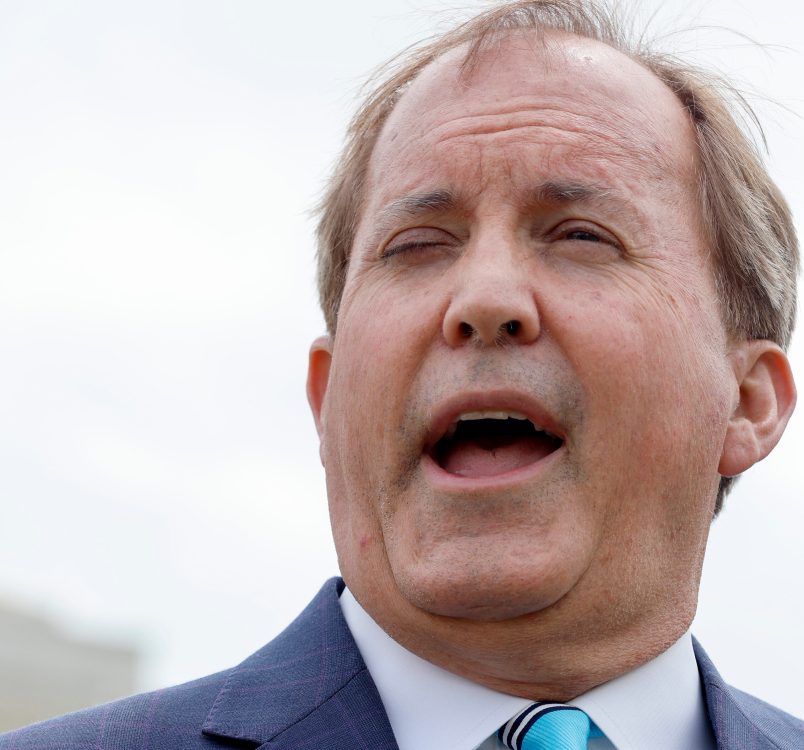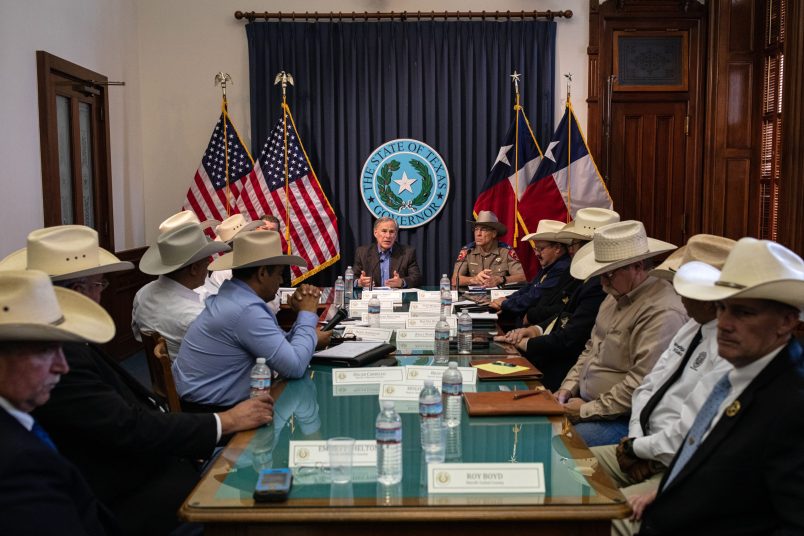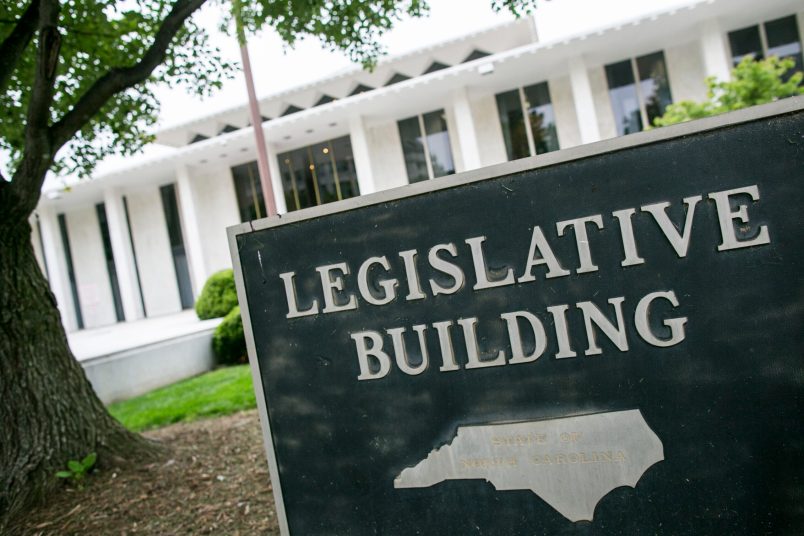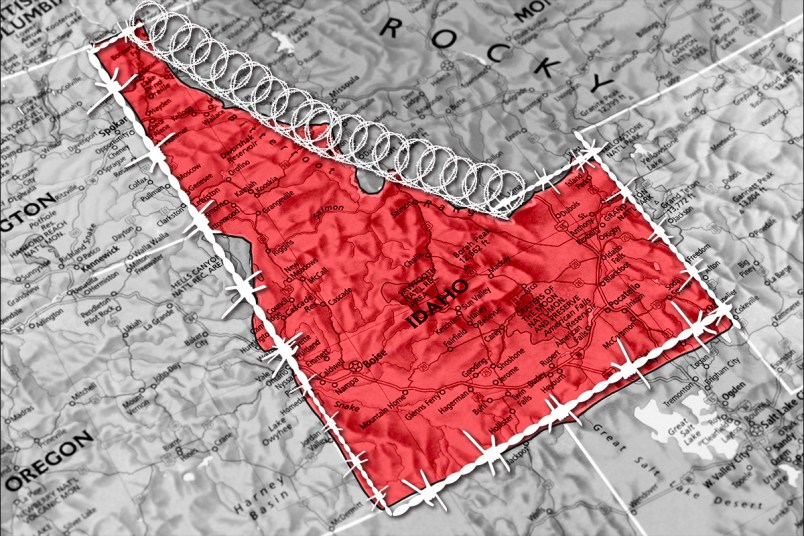Michigan’s secretary of state announced recently that openly carrying firearms at polling places is prohibited. The ban is the latest development in a long-running debate over open carry in the state. But whether the order will be enforced is another question entirely.
Here are five points on state officials’ attempt to keep armed Michiganders from intimidating voters, and the genesis of the months-long fight.
Last week, Michigan’s secretary of state banned openly carrying guns at polling places, citing her authority to prevent voter intimidation.
Michigan’s secretary of state, Jocelyn Benson, has jurisdiction over the state’s elections, and it was in this context that she issued a state-wide ban on Friday: “The presence of firearms at the polling place, clerk’s office(s), or absent voter counting board may cause disruption, fear, or intimidation for voters, election workers, and others present,” she wrote.
The rule came a week after the FBI interrupted an alleged plot to kidnap Michigan Gov. Gretchen Whitmer (D). At least some of the alleged plotters had participated in protests that involved entering the Michigan State Capitol while armed last spring. Those protests rekindled a debate around open carry in the state.
But the question of whether the ban on open carry at the polls would be enforced has hung over Benson’s announcement. In September, two gun violence prevention groups published a report arguing that while Michigan and several other states currently did not prohibit carrying guns at polling places, they did have the constitutional authority to do so.
“If a line is crossed and if anyone becomes disruptive or in other ways tries to intimidate citizens from casting their vote that myself, the attorney general and local law enforcement across the state will be prepared to step in and protect the voters,” Benson told reporters earlier this month. “I would be very concerned about that if anyone does that, and we’re going to be looking at what the law does and does not allow.”
Conservative sheriffs and the NRA have lashed out against the new rule, challenging its legality.
The backlash from conservative sheriffs and other interest groups was almost immediate.
“There’s nothing in the law that gives police the authority to enforce these rules,” said Robert Stevenson, director of the Michigan Association of Chiefs of Police. “The feedback I’ve been getting from our police agencies is that they’re uncomfortable trying to enforce something they clearly don’t have the authority to enforce.”
Matt Saxton, CEO and executive director of the Michigan Sheriffs Association, called the order “a solution in search of a problem” and said it put law enforcement in the middle of a contentious political issue.
And the National Rifle Association’s lobbying division, the Institute for Legislative Action, said Benson’s order was “simply the latest scheme to inconvenience law-abiding citizens and erode their right to self-defense, while doing nothing to improve public safety.”
“No we’re not going to enforce it,” Livingston County Sheriff Mike Murphy told WXYZ Monday. (The sheriff acknowledged separately, “I don’t get what good comes out of open carrying at a poll, quite frankly.”)
Still, it’s hardly the case that all or even most sheriffs have spoken out against the rule. The top cop in Wayne County, Michigan’s largest and home to Detroit, said Monday that “until such time as a court of appropriate jurisdiction tells me that plan is unlawful, it is my plan to enforce.”
Michigan’s attorney general has said state police will enforce the ban if sheriffs refuse.
Michigan Attorney General Dana Nessel has said she’ll enforce the secretary of state’s order. “I’m very hopeful that law enforcement will agree” that the rule ought to be enforced, she said in a recent interview with Showtime’s The Circus.
Pressed on the pushback from law enforcement, Nessel offered a more forceful line: “If you have a county sheriff that seems to be sympathetic to any of these organizations and we think they’re not going to enforce the laws, then we’ll get somebody else who will, the Michigan State Police.”
(“I won’t get into speculation about enforcement action, but the Michigan State Police does have statewide jurisdiction,” an MSP spokesperson told The Detroit News.)
COVID-19 protesters’ use of guns to intimidate legislators looms large.
The recent debate over guns in Michigan goes back a few months to a series of protests held at the state’s capitol building over COVID-19 orders. At one point, armed protesters stormed the capitol and stood over legislators as they worked, moving some lawmakers to don bulletproof vests.
Directly above me, men with rifles yelling at us. Some of my colleagues who own bullet proof vests are wearing them. I have never appreciated our Sergeants-at-Arms more than today. #mileg pic.twitter.com/voOZpPYWOs
— Senator Dayna Polehanki (@SenPolehanki) April 30, 2020
Some of the men present that day were later charged in connection with the plot to kidnap the governor. In response to the protest, one Democratic legislator showed up to work a few days later with her own armed security.
The state is one in a handful to allow guns in its capitol, and so far not even the packed display was enough to change that: The Michigan State Capitol Commission last month rejected proposals to ban guns in the capitol. Democratic legislators have proposed firearms ban as well, but the Republicans in charge of both legislative chambers appear unlikely to budge on the matter.
Sheriffs have picked fights with the state for months, one even defended the alleged kidnapping plotters.
The showdown over guns at polling places follows a tumultuous year for state-local law enforcement relationships in Michigan, where the Democratic-led state government’s COVID-19 public health orders have sometimes been met with open defiance from county sheriffs.
The most public example is Barry County Sheriff Dar Leaf, who spoke out against the state’s stay-at-home orders at crowded public rallies, at one point sharing the stage with a man who would later face state terrorism charges in connection with the alleged plot to kidnap the governor.
After the FBI announced that the alleged plot had been disrupted, Leaf defended the plotters, saying, “a lot of people are angry with the governor and they want her arrested.”
Leaf, as HuffPost reported, is affiliated with the Constitutional Sheriffs and Peace Officers Association, an organization that holds that “the power of the sheriff even supersedes the powers of the President” and urges sheriffs to ignore what they consider unconstitutional orders from state and federal government, especially those concerning guns.


